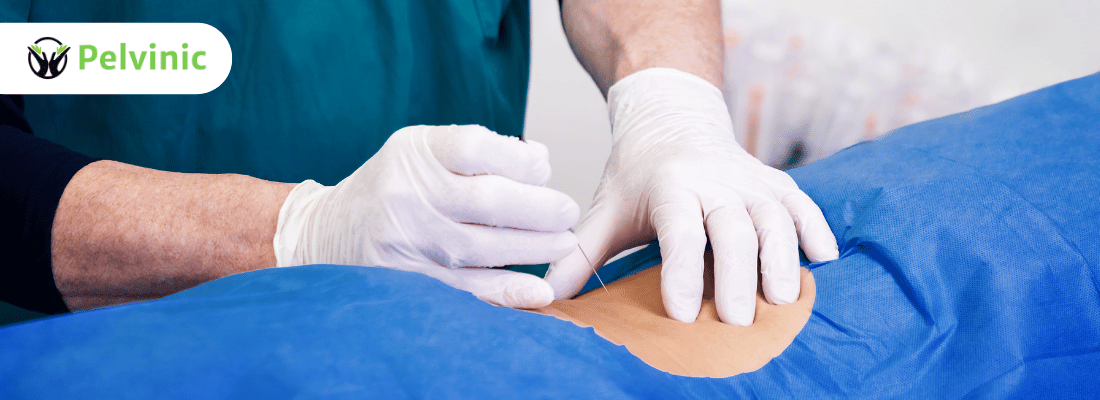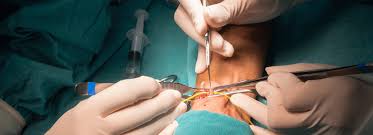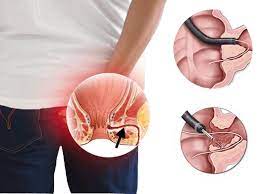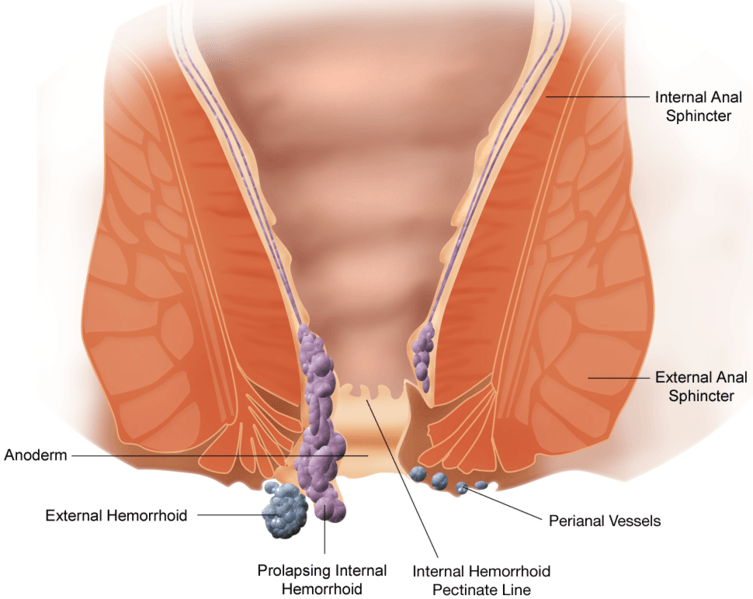Hernia Surgery in Delhi - Expert Treatment at Pelvinic

Overview
Imagine you're lifting a grocery bag or bending over to pick something up, and suddenly you feel a sharp pain in your abdomen. It fades, and you brush it off. Days pass, and the discomfort becomes more frequent. Does this sound familiar? This scenario is more common than you think, and many people often ignore it, assuming it will go away on its own. Unfortunately, that persistent pain could be a hernia, and the longer you delay, the worse it could become. If you're in Delhi and dealing with similar discomfort, it's time to learn about hernia surgery in Delhi. Pelvinic, one of the leading centers for hernia surgeries, offers top-notch care, keeping humanity at the core of its patient-first approach.
What Exactly is a Hernia, and When Should You Consider Surgery?
A hernia occurs when an organ or tissue pushes through a weak spot in the muscle or surrounding tissue. Common areas affected include the abdomen and groin. Hernias don't heal on their own and may worsen over time, which is why recognizing the early signs and seeking prompt treatment is essential.
When should you consider surgery? Here are some signs to look out for:
-
Constant pain or discomfort, especially during activities like lifting or bending.
-
A noticeable bulge that doesn't go away.
-
Difficulty in daily activities due to pain.
If you experience any of these symptoms, it may be time to consider hernia surgery in Delhi.
How Do You Choose the Best Surgeon for Hernia Surgery in Delhi?
Choosing the right surgeon is perhaps one of the most critical decisions you'll make when considering hernia surgery. Here’s what to look for:
-
Experience: Ensure your surgeon has extensive experience, specifically in hernia surgeries.
-
Credentials: Look for certifications and accolades that validate their expertise.
-
Patient Reviews: Check online testimonials for insights into the surgeon’s care and success rate.
-
Facility Quality: The hospital or clinic should be well-equipped, using modern techniques like laparoscopic surgery.
Dr. Sandip Banerjee at Pelvinic is a top surgeon specializing in hernia surgeries, ensuring that you are in skilled hands with a reputation for patient care and surgical success.
What Can You Expect Before, During, and After Hernia Surgery?
Understanding the process from start to finish can alleviate much of the anxiety associated with surgery. Here’s a breakdown:
-
Before Surgery:
-
You will undergo pre-operative assessments like blood tests and imaging scans.
-
Your surgeon will discuss the type of surgery (open or laparoscopic) and what to expect.
-
-
During Surgery:
-
Minimally invasive laparoscopic surgery is often the preferred method due to quicker recovery times.
-
The procedure typically lasts between 30 minutes to an hour.
-
-
After Surgery:
-
Recovery varies but can range from a few days to a week.
-
Most patients can resume normal activities within 1-2 weeks.
-
Follow-up appointments ensure you’re healing properly.
-
Knowing what to expect helps reduce the fear of the unknown, and with experienced hands like those at Pelvinic, you’re assured the highest quality care.
What are the Risks and Benefits of Hernia Surgery, and How Can You Ensure a Safe Recovery?
As with any surgery, there are risks and benefits to consider. Here’s a quick look:
Benefits:
-
Permanent resolution of the hernia.
-
Relief from pain and discomfort.
-
Improved quality of life and ability to perform everyday tasks.
Risks:
-
Infection at the incision site.
-
Recurrence of the hernia.
-
Reactions to anesthesia.
Ensuring a Safe Recovery:
-
Follow your surgeon’s post-operative instructions carefully.
-
Avoid strenuous activities until cleared by your doctor.
-
Attend all follow-up appointments to monitor your healing process.
Can You Avoid Surgery? Exploring Non-Surgical Options for Hernia Treatment
Not all hernias require surgery right away. In some cases, non-surgical options might be considered, particularly for small hernias with minimal symptoms. Non-surgical treatments may include:
-
Wearing a supportive truss to prevent the hernia from worsening.
-
Lifestyle changes such as weight management and avoiding heavy lifting.
However, these treatments only manage symptoms temporarily. Eventually, surgery will likely be required to permanently resolve the issue.
Why is Pelvinic the Best Place for Hernia Surgery in Delhi?
Pelvinic’s commitment to innovation, patient care, and affordability sets it apart. Led by Dr. Sandip Banerjee, an award-winning laparoscopic surgeon, the center offers advanced procedures with a human touch. Dr. Banerjee’s expertise, combined with Pelvinic’s state-of-the-art facilities, ensures that every patient receives the highest standard of care. If you’re looking for hernia surgery in Delhi, trust the team at Pelvinic to guide you through the process with compassion and professionalism.
Conclusion
If you’ve been ignoring that nagging pain or bulge, it’s time to take action. Hernia surgery in Delhi is not just about resolving a medical issue—it’s about reclaiming your quality of life. At Pelvinic, you’re not just a patient; you’re treated with humanity and care, ensuring the best possible outcome. Don’t let fear or uncertainty hold you back. Contact Pelvinic today and take the first step toward a pain-free life.
FAQs
1. Can hernias heal on their own without surgery?
Ans. Unfortunately, hernias don’t heal by themselves. While non-surgical options may manage symptoms temporarily, surgery is the only permanent solution.
2. How long does it take to recover from hernia surgery?
Ans. Most patients can return to their daily activities within 1-2 weeks, but full recovery may take up to 4-6 weeks.
3. Is laparoscopic surgery always an option for hernia repair?
Ans. Laparoscopic surgery is suitable for most hernias, but some complex cases may require open surgery. Your surgeon will determine the best approach.
4. Can lifestyle changes prevent a hernia from getting worse?
Ans. Yes, maintaining a healthy weight and avoiding heavy lifting can prevent a hernia from worsening, but surgery is usually required for a permanent fix.
5. What should I look for when choosing a surgeon for hernia surgery in Delhi?
Ans. Look for experience, patient reviews, and expertise in laparoscopic procedures. Dr. Sandip Banerjee at Pelvinic is a top choice for hernia surgery in Delhi.
Get specialized hernia surgery in Delhi at Pelvinic. Trusted surgeons, advanced techniques, and compassionate care for safe, effective treatment.



